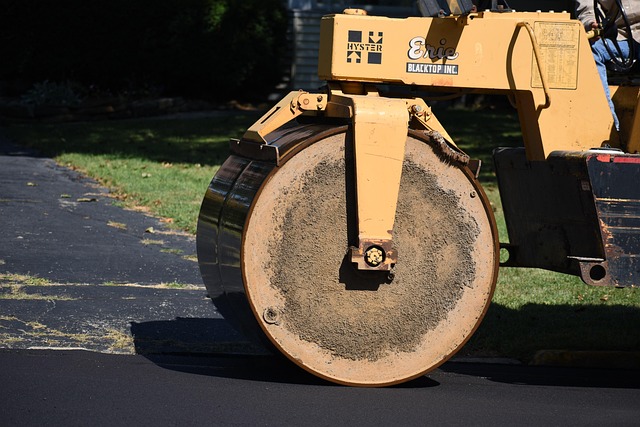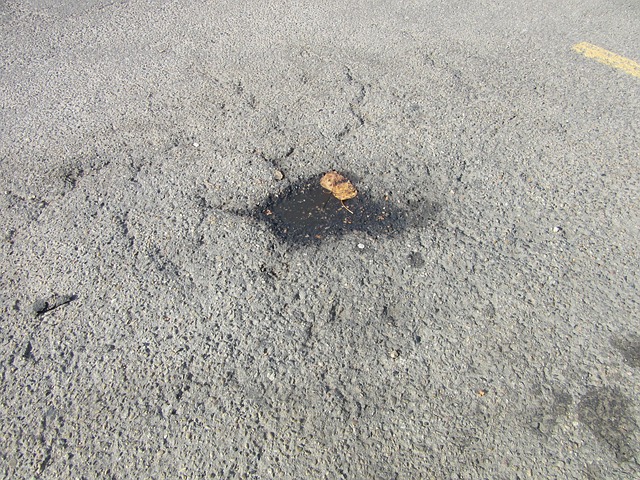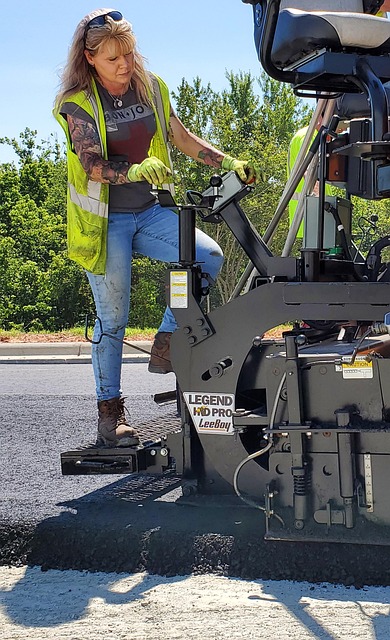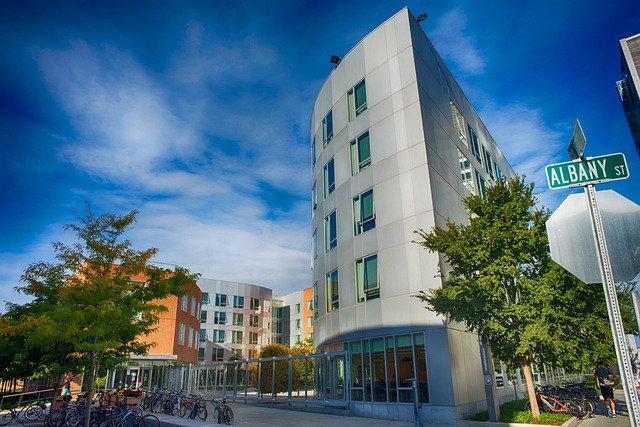Navigating strict asphalt paving regulations in Albany is crucial for property owners and contractors to avoid penalties. The city mandates specific mix designs, durability testing, noise management, traffic control, and disposal practices. Understanding asphalt paving cost Albany, options like driveway sealcoating vs. resurfacing, and permitting requirements ensures compliance and informed decision-making. Green initiatives and sustainable practices further enhance local asphalt installation while maintaining environmental standards. Budgeting for maintenance, such as resurfacing and crack sealing, reduces costs compared to new pavement installations.
“In the bustling landscape of Albany, understanding and adhering to asphalt paving regulations is more than a legal requirement—it’s a crucial factor in ensuring high-quality, safe, and environmentally conscious roadwork. This comprehensive guide delves into the intricate world of asphalt paving compliance in Albany, addressing permits, safety standards, and green initiatives. By exploring these aspects, local contractors can effectively manage compliance costs, resulting in cost-effective and efficient paving projects.”
- Understanding Asphalt Paving Regulations in Albany
- Compliance Costs: An Overview for Local Contractors
- Permits and Licenses: What Every Paver Needs to Know
- Safety Standards for Asphalt Paving Operations
- Environmental Impact: Green Initiatives in Albany's Paving Industry
- Budgeting for Compliance: Strategies for Cost-Effective Paving
Understanding Asphalt Paving Regulations in Albany

In Albany, navigating asphalt paving regulations is essential for both property owners and local asphalt installation companies. Understanding these rules is crucial to ensure compliance and avoid costly penalties. The city has strict guidelines regarding material quality, environmental impact, safety measures, and construction practices. For instance, local laws mandate specific asphalt mix designs and testing procedures to guarantee durability and performance.
Additionally, there are regulations for noise management during construction, traffic control measures, and proper disposal of pavement materials. Property owners considering asphalt paving or resurfacing options for aged driveways should be aware of these standards. Local asphalt installation companies in Albany NY offer a range of services from new installations to repairs and resurfacing, all while adhering to the city’s stringent regulations. Understanding both the asphalt paving cost Albany and available resurfacing options can help residents make informed decisions that meet both their budgets and safety requirements.
Compliance Costs: An Overview for Local Contractors

Compliance with regulations for asphalt paving in Albany comes at a cost for local contractors. These expenses, often overlooked, include adherence to environmental standards, safety protocols, and quality assurance measures. The per square yard asphalt paving charges in Albany reflect not just material costs but also the labor and equipment necessary to meet these regulatory requirements.
Understanding the driveway sealcoating vs. asphalt resurfacing costs is crucial for local contractors and property owners alike. While sealcoating offers a more affordable short-term solution, asphalt resurfacing, though more expensive upfront, provides a longer-lasting repair that aligns with the city’s pavement restoration pricing breakdown in Albany, NY. Staying informed about these costs and their underlying factors is key to ensuring both cost-effectiveness and compliance for any paving project.
Permits and Licenses: What Every Paver Needs to Know

Before beginning any asphalt paving project in the Albany area, contractors must navigate a crucial step: obtaining the necessary permits and licenses. This process is integral to ensuring compliance with local regulations and avoiding hefty fines. Permits are required for various aspects of paving work, including construction, alteration, or closure of roads, as well as specific procedures like asphalt crack filling services and costs in Albany.
Understanding the permit requirements is essential to managing expectations and budgeting accurately. Resurfaced asphalt road costs vs. new pavement can vary greatly, influenced by factors such as project scope, road condition, and local regulations. City officials often provide cost estimates for resurfacing roads, offering a baseline for planning and comparing bids. Compliance with these guidelines not only ensures the safety and quality of the final product but also aligns with the Albany area’s infrastructure standards.
Safety Standards for Asphalt Paving Operations

In ensuring smooth and safe operations, asphalt paving regulations set forth stringent safety standards that all contractors must adhere to. These guidelines cover a broad spectrum, from worker protection during installation to traffic management around active paving sites. For instance, proper personal protective equipment (PPE) is mandated for all personnel involved, including hard hats, safety glasses, and gloves. Additionally, traffic control measures like cones, barriers, and signs are required to divert vehicular traffic away from the paving area, minimizing potential hazards.
In Albany, where the demand for residential paving services varies throughout the year, staying compliant with these standards can significantly impact overall project costs. While low-cost asphalt paving options nearby may seem attractive, meeting safety regulations is non-negotiable. Even minor deviations from these guidelines could result in hefty fines and potential delays. As such, contractors must carefully plan and budget for compliance costs to avoid unexpected expenses, ensuring both the quality and safety of every asphalt paving project.
Environmental Impact: Green Initiatives in Albany's Paving Industry

The environmental impact of asphalt paving has become a growing concern in recent years, prompting many cities to embrace green initiatives. Albany, known for its vibrant urban landscape, is no exception. Local asphalt installation companies are increasingly adopting sustainable practices to reduce their carbon footprint and contribute to a greener city. One notable trend is the shift towards eco-friendly materials and techniques that minimize the environmental impact of paving projects.
These efforts include using recycled asphalt pavement (RAP) and promoting proper asphalt recycling programs. Additionally, many contractors now offer low-cost asphalt paving options nearby, focusing on cost-effective solutions without compromising quality or environmental standards. For instance, asphalt repair quotes for city streets in Albany often incorporate green initiatives, ensuring that repairs are not only swift but also environmentally responsible. Such approaches not only benefit the local ecosystem but also align with the city’s broader sustainability goals.
Budgeting for Compliance: Strategies for Cost-Effective Paving

Budgeting for compliance is a key consideration when it comes to asphalt paving in Albany, with various regulations and standards in place to ensure safe and durable road surfaces. While adhering to these guidelines may seem like an additional cost, there are strategic approaches that can make navigating these requirements more manageable and even cost-effective. One such strategy involves prioritizing maintenance over complete replacements, focusing on resurfacing roads cost estimates by city officials for minor repairs and asphalt crack sealing prices by linear foot for preventing larger issues. By opting for less extensive work, Albany residents and businesses can save significantly in the long run, as new pavement installations often carry substantial price tags.
Furthermore, comparing resurfaced asphalt road costs vs. new pavement can reveal unexpected savings opportunities. Resurfacing offers a cost-efficient alternative, extending the life of existing roads while enhancing their appearance and structural integrity. This method is especially beneficial for areas that only require minor adjustments to meet regulatory standards, as it avoids unnecessary expenditure on complete overhauls. By adopting these cost-conscious strategies, Albany can ensure its paved surfaces remain compliant without breaking the bank.
In conclusion, navigating the complex landscape of asphalt paving regulations and compliance costs in Albany is crucial for local contractors aiming to thrive in the industry. Understanding the necessary permits, safety standards, and environmental considerations can significantly impact project budgets. By adhering to these guidelines and employing strategic budgeting methods, contractors can ensure cost-effective operations while meeting Albany’s high standards for quality and sustainability in asphalt paving. This comprehensive approach not only facilitates compliance but also contributes to the city’s overall infrastructure development.














